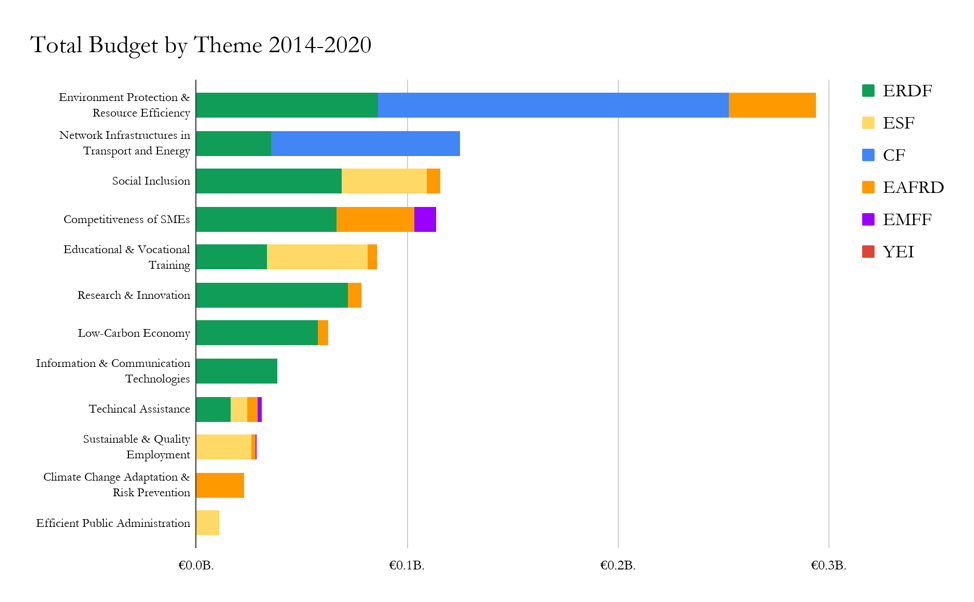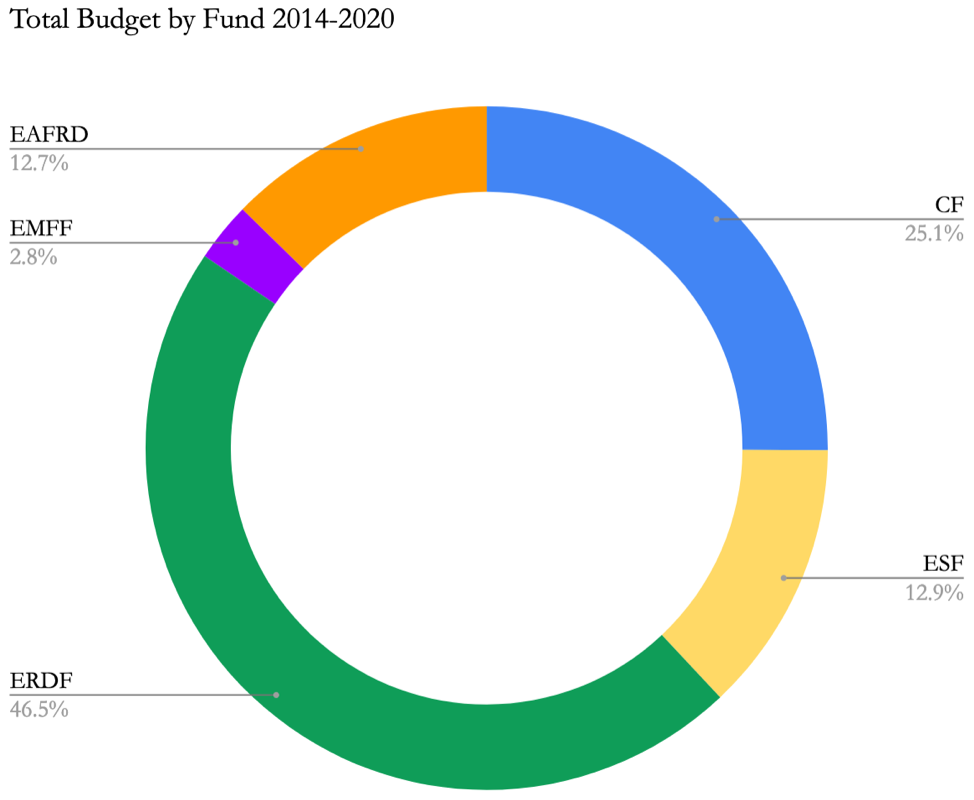News
Country Profile | Malta

Through five national programmes, Malta has been allocated €828 million from ESI funds for the duration of the 2014-2020 Multiannual Financial Framework; an additional national contribution of €194 million take Malta’s total budget to €1.02 billion. This budget is designed to support the country’s socio-economic development and is to be invested in:
- Boosting competitiveness of SMEs and companies;
- Promoting innovation and creating a business-friendly environment;
- Increasing capacity for research, development and innovation (RDI) by investing in public infrastructure and research facilities;
- Stimulating business investment and encourage links between business, research and education;
- Strengthening and developing new information and communication technologies (ICT) products and applications to improve, among others, the efficiency of public services;
- Supporting public and private investment in renewable energy and energy efficiency, and investment in agriculture, water and waste sectors;
- Creating a sustainable and high-quality employment opportunities by investing in human capital, and at the same time improving the health and well-being of workers;
- Ensuring greater social inclusion and tackling poverty and discrimination;
- Promoting vocational education and training;
- Increasing the capacity of government institutions and government authorities.
Malta’s main theme of investment for the 2014-2020 financial framework is the improvement of environmental protection and resource efficiency, for which the country has assigned almost a third of the total budget. The almost €300 million come from three funds, the European Regional Development Fund (ERDF), the Cohesion Fund (CF) and the European Agricultural Fund for Rural Development (EAFRD), with contributions of respectively €86 million, €167 million and €41 million. With this budget the Maltese government is increasing the waste recycling capacity and waste-water treatment capacity, and is also decreasing the emissions of greenhouse gases for more than 68.000 tonnes of CO₂eq. Special attention is paid by Malta to the development of network infrastructures in two strategic sectors of the economy, transport and energy.

As shown in Chart 1, the ERDF and CF are the two Funds financing this theme of investment: the European Regional Development Fund helps Malta with €35 million, whereas the Cohesion Fund contributes to the total budget for €90 million. This budget of €125 million is helping the country improve its transport and energy infrastructure, and will help the country increase the share of renewables in the national production output. Extremely relevant for Malta is also the advancement of social inclusion and the improvement of the lives of the underprivileged: the ERDF, EAFRD and the European Social Fund (ESF) have allocated €70 million, €40 million and €6.5 million to improve the abilities, opportunities, and dignity of vulnerable groups and underprivileged people.

Chart 2 helps us fully understand the EU funding budget of the Maltese government, thanks to an overview of the total available budget divided into the shares that each European Fund has in the total budget of €1.02 billion.
With 46.5%, the European Regional Development Fund (ERDF) is the largest contributor to European funding in Malta, granting more than €475 million alone. The Cohesion Fund (CF) also holds an important role, as it accounts for 25.1%, around €256 million, while the European Social Fund (ESF) grants €132 million and reports a 12.9% share in the total budget. Fourth is the European Agricultural Fund for Rural Development (EAFRD) that sees an allocation of €130 million towards social topics and a share in the total budget of 12.7%. With 2.8%, the European Maritime and Fisheries Fund (EMFF) contribute for only €29 million to the Maltese budget of EU funding.
The country’s absorption rates are substantially higher compared to the European Union average. With a 37% share of spent funding from the ESIF, Malta is 9% above the European average of 28%, meaning that almost €375 million have already been invested. Malta is even more effective when it comes to assigning funds: in fact, the country has already allocated 94% of its total budget, 29% above the EU average of 65%, meaning that €965 million have been assigned to projects and other initiatives. In fact, Malta reached the European average of spent and allocated resources already in 2017, confirming the evidence that the country is among the leading member states in terms of European funding reception and absorption.






